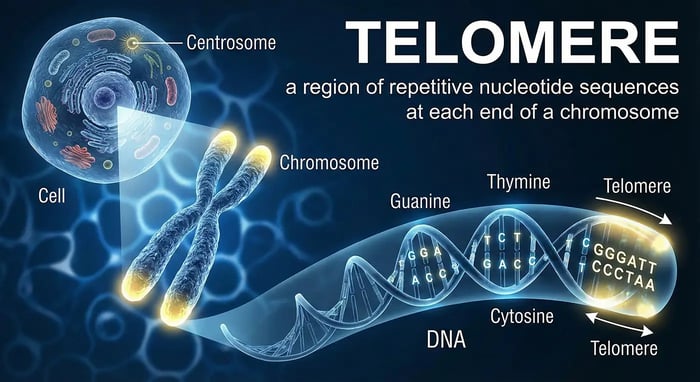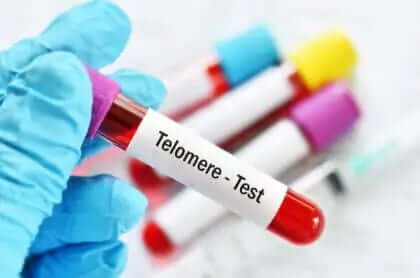Resveratrol Shows Promise Against Aggressive Brain Tumors: New Research Reveals Breakthrough Treatment Potential
Resveratrol, a powerful natural compound found in grapes and berries, demonstrates remarkable potential in fighting glioblastoma multiforme (GBM), the most aggressive form of brain cancer. Recent groundbreaking research reveals how this antioxidant-rich substance could transform treatment approaches for patients facing this devastating diagnosis, offering renewed hope where conventional therapies have fallen short.
Understanding Glioblastoma: The Challenge That Resveratrol May Help Overcome
Glioblastoma multiforme stands as the most common primary brain tumor, affecting thousands of patients worldwide each year. With a median survival rate of just 14.8 months, GBM presents one of modern medicine's greatest challenges. The aggressive nature of these tumors, combined with the brain's protective blood-brain barrier that blocks many therapeutic compounds, has historically limited treatment options.
For patients and families confronting this diagnosis, the search for effective treatments becomes paramount. This is where resveratrol enters the picture as a beacon of hope, showing unique abilities to cross biological barriers and target cancer cells with precision.
The Science Behind Resveratrol's Cancer-Fighting Properties
What makes resveratrol particularly fascinating for researchers is its multi-faceted approach to combating cancer cells. This polyphenol compound, naturally occurring in red wine, peanuts, and various berries, possesses several key characteristics that make it valuable for cancer treatment:
- Anti-inflammatory effects that reduce tumor-promoting inflammation
- Antioxidant properties protecting healthy cells while targeting malignant ones
- Cell cycle regulation preventing uncontrolled cancer cell division
- Apoptosis induction triggering programmed death in cancer cells
- Anti-angiogenic activity cutting off blood supply to tumors
Breaking Through the Blood-Brain Barrier
One of the most exciting aspects of resveratrol research involves its ability to navigate the blood-brain barrier, a protective mechanism that typically prevents most therapeutic agents from reaching brain tumors. Unlike many conventional drugs, resveratrol's molecular structure allows it to penetrate this barrier, delivering its therapeutic benefits directly where needed most.
Groundbreaking Research: Resveratrol Combined with Radiation Therapy
A pivotal study published in the Journal of Cellular Physiology unveiled remarkable findings about resveratrol's effectiveness when combined with radiation therapy. The research team employed a systematic approach that yielded encouraging results for GBM treatment.
The STAT3 Connection: How Resveratrol Targets Cancer at Its Core
The researchers discovered that GBM tumors depend heavily on a protein called STAT3 for their survival and proliferation. This protein acts like a master switch, enabling cancer cells to grow uncontrollably and resist conventional treatments. The study revealed that resveratrol specifically targets and inhibits STAT3, essentially cutting off the tumor's lifeline.
Through extensive testing in both animal models and cell cultures, the research demonstrated that combining resveratrol with radiation therapy created a synergistic effect. This combination treatment significantly increased cancer cell death rates compared to either treatment alone, marking a substantial advancement in GBM therapy approaches.
Real-World Impact: What This Means for Patients
For individuals diagnosed with glioblastoma, these findings represent more than just laboratory success stories. The research shows that resveratrol supplementation could potentially:
- Enhance radiation therapy effectiveness by making cancer cells more vulnerable to treatment
- Reduce treatment resistance often seen with conventional therapies alone
- Improve overall survival rates beyond current median expectations
- Minimize side effects through targeted action on cancer cells
- Offer a natural adjuvant therapy that complements existing treatment protocols
Optimal Resveratrol Dosing and Administration
While research continues to determine the most effective dosing strategies, current studies suggest that resveratrol's bioavailability plays a crucial role in its therapeutic effectiveness. Factors influencing optimal administration include:
| Factor | Consideration | Impact on Effectiveness |
|---|---|---|
| Dosage Form | Capsules, liquid, or powder | Affects absorption rate and bioavailability |
| Timing | With meals or empty stomach | Influences absorption and tolerance |
| Combination | With other supplements or medications | May enhance or inhibit effectiveness |
| Quality | Purity and standardization | Determines therapeutic potential |
Beyond Brain Tumors: Resveratrol's Broader Cancer-Fighting Potential
While the focus on glioblastoma represents a critical breakthrough, resveratrol's anti-cancer properties extend to various other malignancies. Research indicates potential benefits for:
- Colorectal cancer prevention and treatment
- Breast cancer cell inhibition
- Prostate cancer progression slowdown
- Lung cancer metastasis prevention
- Skin cancer protection through UV damage reduction
The Molecular Mechanisms at Work
Resveratrol operates through multiple pathways to combat cancer development and progression. Its ability to modulate gene expression, particularly those involved in cell survival and death, makes it a versatile therapeutic agent. The compound influences several critical cellular processes:
Cell Signaling Modulation: By interfering with cancer-promoting signals, resveratrol disrupts the communication networks tumors use to grow and spread.
Epigenetic Regulation: The compound can alter gene expression patterns without changing DNA sequences, potentially reversing cancer-promoting modifications.
Metabolic Reprogramming: Cancer cells often rely on altered metabolism for energy. Resveratrol helps normalize these metabolic pathways, starving tumors of necessary resources.
Integrating Resveratrol into Comprehensive Cancer Care
For patients considering resveratrol supplementation as part of their cancer treatment strategy, a holistic approach yields the best results. This includes:
- Medical consultation: Always discuss resveratrol supplementation with oncology teams to ensure compatibility with existing treatments
- Quality sourcing: Choose high-purity, standardized resveratrol products from reputable manufacturers
- Lifestyle optimization: Combine supplementation with healthy diet, exercise, and stress management
- Regular monitoring: Track progress and adjust protocols based on response and medical guidance
- Patient support: Join communities and resources focused on integrative cancer care approaches
Future Directions: The Evolving Landscape of Resveratrol Research
The scientific community continues to explore resveratrol's full potential in cancer treatment. Ongoing studies investigate:
- Optimal dosing protocols for maximum therapeutic benefit
- Novel delivery systems to enhance bioavailability
- Combination therapies with other natural compounds
- Personalized treatment approaches based on genetic profiles
- Long-term safety and efficacy data
These research directions promise to unlock even greater potential for resveratrol in cancer care, potentially revolutionizing how we approach treatment for aggressive tumors like glioblastoma.
Success Stories and Patient Experiences
While individual results vary, many patients incorporating resveratrol into their treatment protocols report positive outcomes. These experiences, combined with clinical research, paint an encouraging picture for those seeking additional therapeutic options. Patients often describe improved energy levels, better tolerance to conventional treatments, and enhanced overall well-being during their cancer journey.
Taking Action: Your Path Forward with Resveratrol
If you or a loved one faces a cancer diagnosis, particularly aggressive forms like glioblastoma, exploring resveratrol's potential benefits represents a proactive step toward comprehensive care. Consider these action items:
- Research reputable resveratrol supplements and their quality standards
- Document current treatments and medications for healthcare provider discussions
- Create a supplementation journal to track effects and improvements
- Connect with integrative oncology specialists familiar with resveratrol research
- Stay informed about emerging studies and clinical trials
Conclusion: A Promising Future with Resveratrol
The journey toward effective cancer treatment often requires exploring multiple avenues, and resveratrol represents a particularly promising path. As research continues to unveil its mechanisms and benefits, particularly for aggressive tumors like glioblastoma, patients gain access to a powerful ally in their fight against cancer.
The combination of resveratrol with conventional therapies offers hope where it's needed most, potentially extending survival rates and improving quality of life for those facing difficult diagnoses. While not a miracle cure, resveratrol's scientifically-backed benefits make it a valuable consideration for anyone seeking comprehensive cancer care solutions.
Frequently Asked Questions About Resveratrol and Cancer Treatment
What exactly is resveratrol and where does it come from?
Resveratrol is a naturally occurring polyphenol compound found primarily in the skin of red grapes, berries (especially blueberries and cranberries), peanuts, and Japanese knotweed. This powerful antioxidant serves as a plant's defense mechanism against stress, injury, and infection. For human health, resveratrol offers remarkable anti-inflammatory and anti-cancer properties, making it a subject of intense scientific study for various health conditions, particularly cancer treatment.
How does resveratrol specifically help with brain tumors like glioblastoma?
Resveratrol demonstrates unique effectiveness against brain tumors through several mechanisms. First, it can cross the blood-brain barrier, which many cancer drugs cannot do. Once in the brain, resveratrol inhibits the STAT3 protein that glioblastoma cells need to survive and multiply. When combined with radiation therapy, resveratrol makes cancer cells more sensitive to treatment, significantly increasing cell death rates. This dual action of direct tumor suppression and treatment enhancement makes resveratrol particularly valuable for aggressive brain cancers.
Is it safe to take resveratrol during cancer treatment?
While resveratrol is generally considered safe and well-tolerated, cancer patients should always consult their oncology team before adding any supplements to their treatment regimen. Research shows that resveratrol can enhance certain cancer treatments, particularly radiation therapy, but it may interact with some chemotherapy drugs. Your healthcare provider can assess whether resveratrol supplementation aligns with your specific treatment plan and monitor for any potential interactions or side effects.
What dosage of resveratrol is recommended for cancer patients?
Optimal resveratrol dosing for cancer patients varies based on individual factors and specific cancer types. Clinical studies have used doses ranging from 150mg to 5,000mg daily, though most therapeutic benefits appear at doses between 250-1,000mg per day. The bioavailability of resveratrol can be enhanced by taking it with a small amount of fat or choosing specialized formulations. Always work with healthcare professionals to determine the appropriate dose for your situation, as higher doses don't necessarily mean better results.
How long does it take to see benefits from resveratrol supplementation?
The timeline for experiencing resveratrol's benefits varies depending on the health condition and individual factors. Some patients report improved energy and well-being within 2-4 weeks of starting supplementation. For cancer-specific benefits, studies suggest that consistent use over several months, particularly when combined with conventional treatments, yields the most significant results. Regular monitoring and patience are key, as resveratrol works at the cellular level to create lasting changes rather than providing immediate dramatic effects.
Can resveratrol prevent cancer in healthy individuals?
Research suggests that regular resveratrol consumption may help reduce cancer risk in healthy individuals. Its antioxidant properties protect DNA from damage, while its anti-inflammatory effects create an environment less favorable for cancer development. Population studies show lower cancer rates in regions with high dietary resveratrol intake. While not a guarantee against cancer, incorporating resveratrol through diet or supplementation represents a proactive approach to cancer prevention, especially when combined with other healthy lifestyle choices.
Are there any side effects of taking resveratrol?
Resveratrol is generally well-tolerated with minimal side effects at recommended doses. Some individuals may experience mild digestive discomfort, including nausea or diarrhea, particularly at higher doses. Resveratrol can also interact with blood-thinning medications and may affect estrogen-sensitive conditions. Starting with lower doses and gradually increasing allows your body to adjust while monitoring for any adverse reactions. Most people tolerate resveratrol well and experience primarily positive effects.
What's the difference between resveratrol from food sources versus supplements?
While dietary sources of resveratrol provide valuable health benefits, achieving therapeutic doses through food alone proves challenging. For example, you would need to consume hundreds of glasses of red wine daily to match the resveratrol levels used in cancer studies. Supplements offer standardized, concentrated doses without the calories, sugar, or alcohol found in food sources. However, whole foods provide additional beneficial compounds that work synergistically with resveratrol, making a combination approach ideal for optimal health benefits.
How does resveratrol compare to other natural cancer-fighting compounds?
Resveratrol stands out among natural cancer-fighting compounds for its ability to cross the blood-brain barrier and its well-documented effects on multiple cancer pathways. While compounds like curcumin, green tea extract, and vitamin D also show anti-cancer properties, resveratrol's unique molecular structure and broad-spectrum activity make it particularly versatile. Many integrative oncologists recommend combining resveratrol with other natural compounds for synergistic effects, as each targets different aspects of cancer development and progression.
What should I look for when choosing a resveratrol supplement?
Quality matters significantly when selecting resveratrol supplements. Look for products that specify trans-resveratrol content, as this is the bioactive form. Third-party testing for purity and potency ensures you're getting what the label claims. Consider bioavailability-enhanced formulations that improve absorption. Reputable manufacturers provide certificates of analysis and avoid unnecessary fillers or additives. Price shouldn't be the only factor; investing in high-quality resveratrol ensures you receive the therapeutic benefits documented in research studies.
References:







